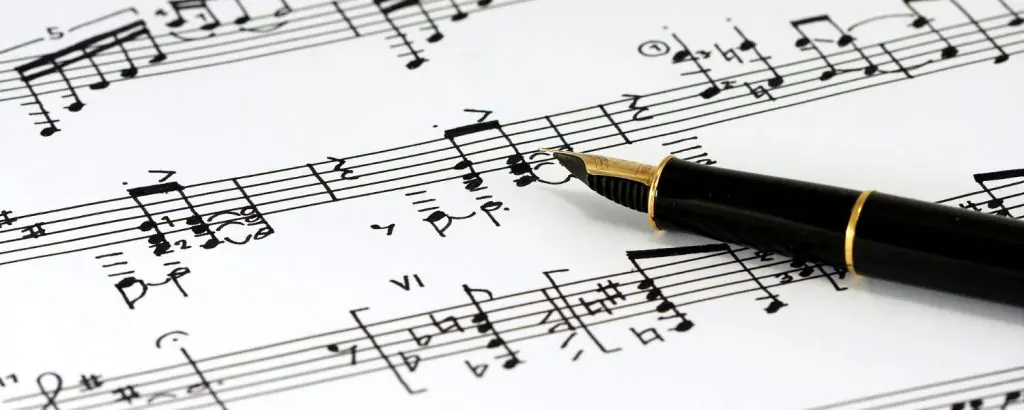
The profound connection between music and human emotions is a well-established phenomenon. Across cultures and centuries, music has played a pivotal role in expressing and channelling emotions, from joy and celebration to sorrow and mourning. The significance of funeral music and funeral songs becomes particularly pronounced in mourning.
This blog explores the intricate connection between music and the process of grieving, focusing on the healing power of melodies and their role in fostering remembrance. Special attention will be given to Swanborough Funerals, a renowned funeral service provider that recognises the importance of music in creating a meaningful and comforting farewell experience.
The Historical and Cultural Significance of Funeral Music

Funeral music has a rich history, deeply embedded in various cultural traditions. Across different societies, music has been employed during funeral rites to evoke emotions, provide solace, and pay tribute to the departed. The choice of funeral songs often reflects cultural norms, religious beliefs, and personal preferences. Music can transcend language barriers, offering a universal medium for expressing grief and conveying sentiments that words may fail to articulate.
Funeral music is not a recent development; it has been integral to human rituals for centuries. From classical compositions to traditional hymns and contemporary ballads, the repertoire of funeral songs is diverse, catering to the varied preferences of mourners. The evolution of funeral music mirrors the changes in societal attitudes toward death and mourning, illustrating the enduring role of music in navigating the complexities of grief.
The Therapeutic Role of Funeral Songs in Grieving

Music has long been recognised for its therapeutic properties and profound impact on grieving. Funeral songs serve as a poignant medium for the expression of emotion, providing mourners with a means to connect with their feelings and seek solace within the gentle embrace of melodies. Research in music therapy suggests that music can help individuals process grief, reduce anxiety, and promote emotional healing.
When carefully selected, funeral songs can evoke memories, create a sense of connection, and provide a cathartic release for mourners. These songs’ rhythm, melody, and lyrics contribute to a collective experience, fostering a supportive atmosphere during the mourning process. The power of music lies in its ability to address the multifaceted nature of grief, offering both a means of expression and a source of comfort.
Swanborough Funerals: A Thoughtful Approach to Funeral Music

Swanborough Funerals, a leading funeral service provider, recognises the importance of personalisation in the funeral experience. Understanding the impact of music on the grieving process, Swanborough Funerals offers a thoughtful and comprehensive approach to selecting funeral songs. The organisation acknowledges that funeral music is not merely a background element but a crucial component that can profoundly influence the atmosphere of the farewell ceremony.
At Swanborough Funerals, the process of choosing funeral songs is collaborative, involving the family and friends of the deceased. The funeral directors work closely with the bereaved to understand the musical preferences of the departed and those left behind. This personalised approach ensures that the chosen funeral songs resonate with the unique memories and relationships associated with the deceased.
The Evolution of Funeral Music in Contemporary Society

As societal attitudes toward death and mourning continue to evolve, so does the landscape of funeral music. Contemporary funerals often feature a diverse range of genres, reflecting the individuality and diverse tastes of the deceased. While classical hymns and religious compositions remain prevalent, there is a growing acceptance of popular and unconventional choices for funeral songs.
The digital age has also transformed how funeral music is accessed and shared. Online platforms and streaming services provide many options, enabling mourners to select songs with personal significance. This shift underscores the adaptability of funeral music to changing times and cultural preferences, emphasising the enduring role of melodies in the grieving process.
Healing Through Harmony: The Psychological Impact of Funeral Music

The psychological impact of funeral music extends beyond its immediate emotional resonance. Music can stimulate memories, create a sense of continuity, and facilitate the mourning process. In the context of grief, the right funeral songs can bridge the past and present, allowing mourners to revisit shared experiences and celebrate the departed’s life.
The rhythm and tempo of funeral music can influence the pace of the mourning process, offering moments of reflection and contemplation. In some cases, mourners find solace in the familiarity of well-chosen songs, creating a comforting environment that encourages the expression of emotions and sharing memories. The therapeutic potential of funeral music lies in its ability to create a supportive space for mourning individuals.
Funeral Music Across Cultures: A Global Perspective

The relationship between music and mourning is a universal phenomenon, transcending cultural boundaries. Different cultures have unique traditions and rituals associated with death, and funeral music is central to many of these customs. From the haunting melodies of traditional Chinese funeral music to the uplifting hymns of African-American gospel funerals, the diversity of musical expressions reflects the richness of global mourning traditions.
In some cultures, funeral songs are selected based on specific religious or spiritual beliefs, while in others, the emphasis may be on communal singing and participation. Despite the cultural variations, the underlying purpose of funeral music remains consistent: to honour the departed, console the grieving, and provide a communal space for remembrance.
Conclusion: The Enduring Legacy of Funeral Music in Healing and Remembrance
The impact of music on the grieving process is profound and enduring. With its ability to evoke emotions, provide solace, and foster remembrance, funeral music plays a crucial role in shaping the farewell experience. The collaboration between mourners and funeral service providers, exemplified by Swanborough Funerals, highlights the importance of a personalised and thoughtful approach to selecting funeral songs.
The healing power of funeral music lies in its capacity to transcend cultural, temporal, and emotional boundaries. Spanning classical compositions to contemporary ballads, funeral songs stand as poignant reminders of the universal human experience of loss and the lasting ability of music to offer solace and healing.
As we navigate the complexities of grief, the melodies accompanying our farewells remain a timeless and comforting presence, echoing the resilience of the human spirit in the face of loss.
 "/>
"/>
